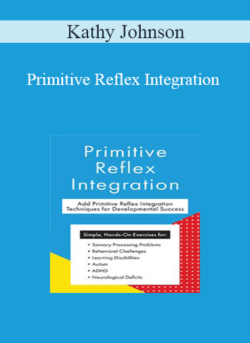Total Size:Digital products: Get the download link at Account or directly via email.Support: LifetimeDownload: Unlimited Of Course 2-Day: Advanced Assessment Skills: Respond to the Patient’s Clues with Skill and Confidence – Dr. Paul LangloisPurchase 2-Day: Advanced Assessment Skills: Respond to the Patient’s Clues with Skill and Confidence – Dr. Paul Langlois courses at here with PRICE $149.99 $72When purchasing 2-Day: Advanced Assessment Skills: Respond to the Patient’s Clues with Skill and Confidence – Dr. Paul Langlois course, You can get it with the LIFETIME SUPPORT and UNLIMITED DOWNLOAD.2-Day: Advanced Assessment Skills: Respond to the Patient’s Clues with Skill and Confidence – Dr. Paul LangloisMaybe your instinct kicked in with a patient you cared for in the past. You knew something was ‘off’. But what was it? Have you always felt confident that you had done enough…Have you ever been perplexed with symptom findings in your patient’s history or physical exam? If a laboratory test, 12-lead ECG, or arterial blood gas were ordered, would you be able to interpret the findings – without missing something important? Whether you have been in practice for decades or just a few years, picking up on the subtle clues from the patient can be a challenge to master. Without the skills to quickly identify concerns and initiate appropriate interventions, you could be putting your patient, and your license, at risk.Watch nationally-recognized speaker, Dr. Paul Langlois, APN, PhD, CCRN, CCNS, CNRN, in this recording to gain powerful new clinical insights and critical thinking skills so you won’t need to feel uncertain or scared anymore. You will learn through exciting patient case studies, reinforced with helpful new clinical mnemonics. Finish this intense course with increased confidence in your ability to conduct differential symptom analysis, interpret the laboratory implications, skillfully read 12-lead ECGs, document your findings, and, ultimately, select the interventions to ensure the best outcomes for your patient. You will experience the dramatic changes in your own practice when you work your next shift!Integrate sound critical thinking and clinical decision-making.Demonstrate advanced heath assessment knowledge and skills including therapeutic communication.Manage a comprehensive database including functional assessment, psychological assessment, health and pharmacological history, and physical examination.Formulate appropriate laboratory and diagnostic testing.Interpret findings of laboratory and diagnostic testing along with suggestions for treatment.Establish a differential diagnosis based on assessment data.Locate the area of the heart where ischemia, injury, or infarction are occurring based on 12-lead ECG.Choose the best interventions for stabilization of the deteriorating patient.Determine the key interventions to stabilize the successfully resuscitated patient.Analyze the latest clinical practice guidelines for common pathologies and comorbidities.Formulate documentation strategies to protect yourself and your practice in the case of lawsuit.Evaluate early signs of clinical deterioration to identify key interventions to initiate.Psychosocial AssessmentCALM acronym: How to set the person at ease during your assessmentThree key elements in determining the psychosocial assessmentProven ways to assess stress in the patientTwo ways to quickly identify suicidal ideationIs this an accident or abuse or neglect?General Survey of the Patient: What You See is What You Get…Well Not AlwaysSymptom analysis…use the COLDSPA acronymWhat the blood pressure and pulse tell you about the patient…even before the stethoscopeFour proven ways to differentiate neuropathic and non-neuropathic painKey steps when a patient says that they have a condition you have never heard ofAre the patient’s medications causing the problem…check the Beers criteriaLook Into My EyesRed-flags you must be aware of regarding the eyesHow medications affect the eye examDifferentiating visual acuity and visual fields…impact of the cranial nervesRespiratory System…Much More than Breath SoundsThree age-related changes in the lungs you must knowThe stethoscope is vital, but so are your handsHow to differentiate asthma, emphysema, pneumonia, and pleural effusionKeys to indicate the patient needs a chest radiographThe ABCs of ABGs: Four proven ways to contrast respiratory vs. metabolic acidosis and alkalosisFour other laboratory tests to assess lung functionMedications for pulmonary conditionsCardiovascular System…Beyond the HeartDetermine if that adventitious sound is during systole or diastoleMurmurs, rubs, opening snaps…what do they all mean?What does the ECHO cardiogram tell you?Identify the location of the ischemia, injury, or infarction based on the 12-lead ECGLaboratory tests for heart conditions…Heart failure, myocardial infarction, pericarditisPearls for a thorough peripheral vascular assessment…arteries, veins, and lymph nodesMust-know categories of medications that deteriorate the heartGastro-intestinal System…Beyond the Large and Small IntestineDon’t worry about this prevalent finding…it is age relatedGI laboratory tests that are vital for patient assessmentCould this be cancer or a normal finding?Four most-ordered GI procedures and differential diagnosisThe effect of medications on the GI tractGenitourinary SystemDifferentiate cystitis, UTI, and pyelonephritis…should medications be prescribed?”There is blood in my urine”; what you need to do right now for your patientGU laboratory test and procedures; how to interpret the resultsHow contrast dyes affect the kidney…watch out for these signsMusculoskeletal System”I have this back pain”; what you need to do now before the pain progressesDifferentiating muscular pain and nerve damageFive time-honored tests for the musculoskeletal systemMedications that facilitate fluidity in the MS systemNeurologic SystemDifferentiating two- and three-reflex arcsFour pearls when conducting cranial nerve assessmentIs this a motor or sensory problem?Two tests for meningitis which do not require cerebral spinal fluidTypes of seizures and the latest medication optionsFour deadly infections of the neurologic systemDoes your patient need an MRI, Positron emission tomography, or CT scan?Neurologic monitoring: Intraventricular, intraparenchymal, brain oxygen tensionAssessment of the Elderly PatientHead to toe differences in the assessment of the elderly patient”I can’t seem to remember…is this normal?” Cognitive alterations occurring as we ageThese laboratory parameters differ in the elderlyThe effect of medications on the elderlyRapid Assessment of the Decompensating PatientAMPLE acronym: A must-know to quickly and accurately gather patient information”I have pain”…the PQRST acronym is vital to help the patientGet these labs immediately for a crashing patientAre you interested in? advanced nutrients; advanced clinicals; advanced bionutritionals; advanced bushcraft; advanced dog puzzlePurchasing 2-Day: Advanced Assessment Skills: Respond to the Patient’s Clues with Skill and Confidence – Dr. Paul Langlois course now, You can get it with the LIFETIME SUPPORT and UNLIMITED DOWNLOAD.Purchase 2-Day: Advanced Assessment Skills: Respond to the Patient’s Clues with Skill and Confidence – Dr. Paul Langlois courses at here with PRICE $149.99 $72

 2-Day: Vision Therapy Intensive Training Course: Upgrade Your Skills and Boost Referrals with Today’s Best Practices – Sandra Stalemo
₹11,952.00
2-Day: Vision Therapy Intensive Training Course: Upgrade Your Skills and Boost Referrals with Today’s Best Practices – Sandra Stalemo
₹11,952.00
 Kathy Johnson – Primitive Reflex Integration
₹6,806.00
Kathy Johnson – Primitive Reflex Integration
₹6,806.00
2-Day: Advanced Assessment Skills: Respond to the Patient’s Clues with Skill and Confidence – Dr. Paul Langlois
₹11,952.00


